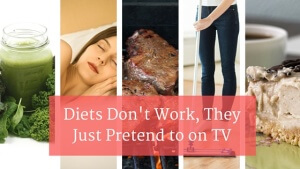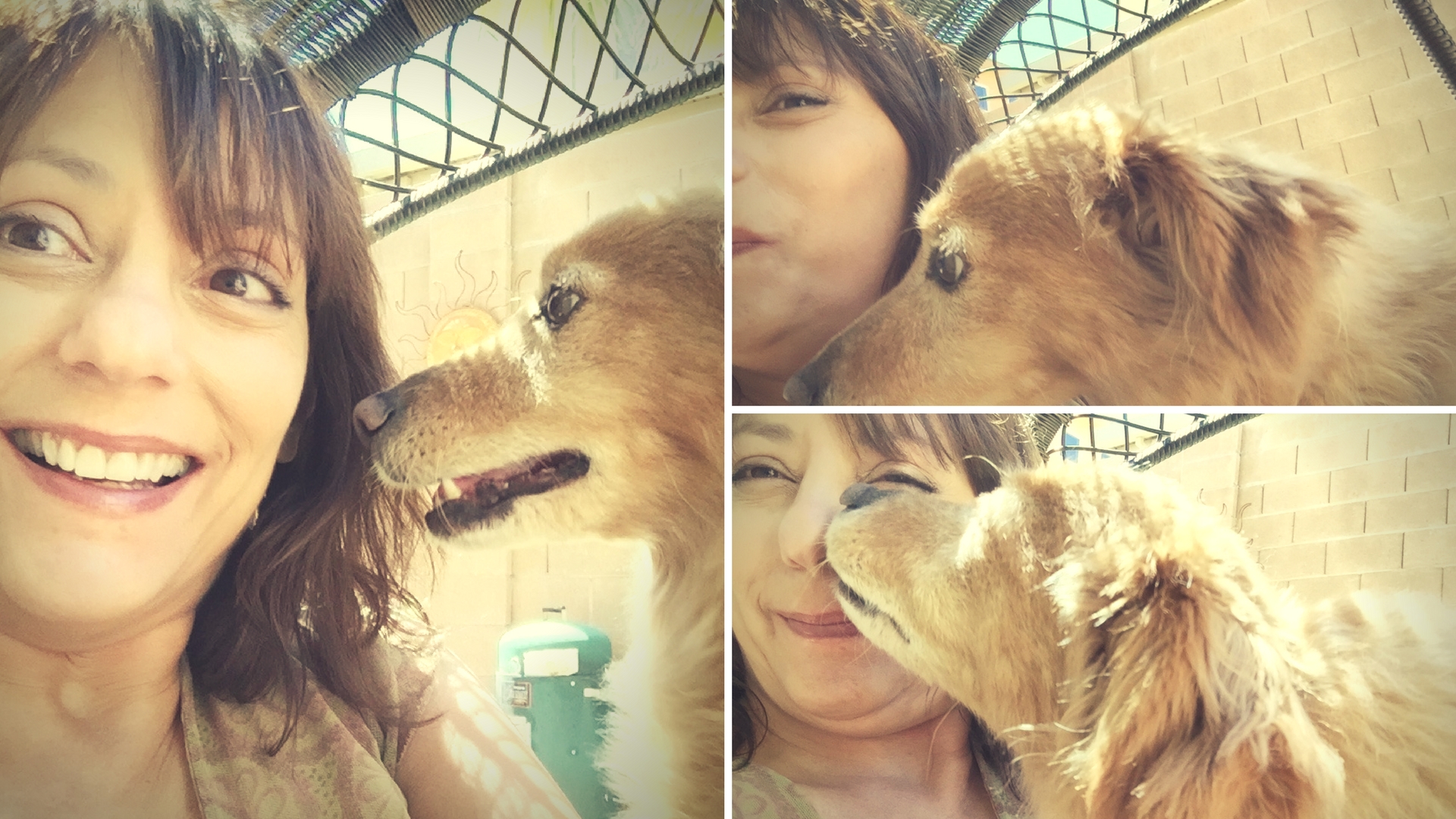ABC’s My Diet Is Better Than Yours Is Just Another TV Show Hawking Diet Culture
 What fresh TV hell is this? Why, it’s ABC’s new program, My Diet Is Better Than Yours. Apparently, we needed another network besides NBC (home of the bully-fest, AKA The Biggest Loser) with dramatic weigh-ins to complete your TV viewing pleasure. [Tweet “ABC has kindly stepped in to fill the thigh gap.”]
What fresh TV hell is this? Why, it’s ABC’s new program, My Diet Is Better Than Yours. Apparently, we needed another network besides NBC (home of the bully-fest, AKA The Biggest Loser) with dramatic weigh-ins to complete your TV viewing pleasure. [Tweet “ABC has kindly stepped in to fill the thigh gap.”]
At first glance, MDIBTY is certainly not as in-your-face-mean as The Biggest Loser. The “celebrity trainers” do not overtly bully the contestants or push them to the point of vomiting (at least in the first two episodes). However, there are some weirdly uncomfortable moments where contestants are challenged in unhelpful ways. One contestant is asked point-blank by her “expert” if she believes she can win the whole competition. The contestant’s answers are deemed untruthful because she doesn’t hold the expert’s freakishly intense staredown as she verbalizes confidence. As I watched this, it seemed to have less to do with the contestant’s self-confidence and more to do with her potential lack of confidence in her trainer. Someone who makes you do squats in the grocery store while shopping for produce might not engender the most devotion – or results.
Where to start? First, the title. The name My Diet Is Better Than Yours sets up the premise that one diet plan is better than another. Research 101: you cannot generalize findings from a sample of only five contestants. Therefore, you cannot determine that one diet is better than another based on this show. Additionally, research indicates that no diet is effective at weight loss over the long term. Obviously, the show is not real research. Rather, the name, My Diet Is Better Than Yours, better evokes a subtitle of nyah, nyah, nyah, nyah, nyah.
So clearly, MDIBTY is not real research. Unfortunately, it is also not real entertainment. Less than two minutes into the pilot episode, my husband pronounced the show terrible and went back to playing Boom Beach on his phone. I felt it was my professional duty to watch the first two episodes, which aired back-to-back. I did it so you don’t have to. You’re welcome.
Just like the $60-billion/year weight loss industry, this show features a wide variety of philosophies. Conflicting advice abounds, and precious little of it has any scientific evidence to back up the claims. Here’s a quick summary of some of the weight loss approaches featured in this show:
- Want to avoid heart attacks? Eat mostly animal products and greens. Saturated fat rules!
- Animal products will kill you! You need to eat purely vegan foods to cleanse and detox!! My favorite BS from this one is the claim that a 1-inch decrease in waist size means, “Now your body is probably rearranging stuff.” What is this stuff of which she speaks? Like most people who espouse detoxing, she is vague. It is not clear what this stuff is, or precisely how it is being rearranged.
- It’s not about food, so you don’t need a diet! Although this plan mentions finding the “root cause” it doesn’t seem to really look for it. Rather, it highlights external behavioral strategies to control portions through tricks like plate color and eating with your nondominant hand. On the plus side, the importance of sleep is emphasized. On the negative side, the contestant was pushed into a fear-mongering exercise of writing his own obituary. Shame never helps people make sustained, positive changes. But a grown man crying on national TV is ratings gold, right?
- Want weight loss to be easy? Turn everyday housecleaning and other tasks into a workout! This sounds fun and useful – except this trainer is oddly intense. Where it really lost me is when the trainer tried to turn the contestant’s evening prayer into an exercise. Exercising right before bed can interfere with sleep, so that’s potentially an issue. But the poor woman was PRAYING for crying out loud. Let her have space to mentally, emotionally, and spiritually focus on this. I think the trainer may be going to Hell for this one.
It’s Really Just the Same-Old Same-Old
Although it might seem different on its surface, MDIBTY recycles many of the same weight-loss beliefs that will likely backfire in the bigger picture.
- The exercise portions of the program do not resemble the torture-fests that you may see elsewhere on television. However, it still pushes people who haven’t been exercising into intense activity. For example, contestants were required to compete by moving large quantities of high-fructose corn syrup, white sugar, and liters of soda to “toxic waste bins.” Not only was the activity very intense for previously-sedentary people, it also perpetuates myths about the vilified-food-du-jour: sugar.
- MDIBTY fosters a fear of food. After the sugar-is-evil physical workout, one contestant verbalized her new fear of sugar. When her trainer offered a vegan cookie, she refused to eat even one bite.
- Weight loss is the only real measure of success. Although some contestants’ blood pressure dropped significantly by the first weigh-in, it was weight loss that was really valued. Your blood pressure dropped 18 points, but too bad you didn’t lose double-digit pounds this week.
- Too-fast weight loss is expected and encouraged. On MDIBTY Planet, a weight loss of six pounds makes you a loser. This particular contestant was disappointed because she had wanted to lose ten pounds in one week. A weight loss of ten pounds in a week is a totally arbitrary and unrealistic goal – plus, if you should lose ten pounds in one week it is almost entirely water weight.
- Only the short term is considered. The host verbally emphasized that the show employs medical staff who are concerned with the contestants’ long-term health. However, the program is only weeks long.
- All of the weight loss plans teach you not to trust yourself. Food must be measured, weighed, or compared to the size of your hand. What are you hungry for? It doesn’t matter, because you can’t have it. There are some exceptions to this, such as the plan that allowed cake – as long as you ate it outside of your home. Cake is not allowed in your home, because you clearly cannot be trusted (and cake is very sneaky).
Unfortunately and unsurprisingly, My Diet Is Better Than Yours provides no new TV paradigm for improving your relationship with food. But if you want to observe a cross-section of diet culture, you might have a look.






